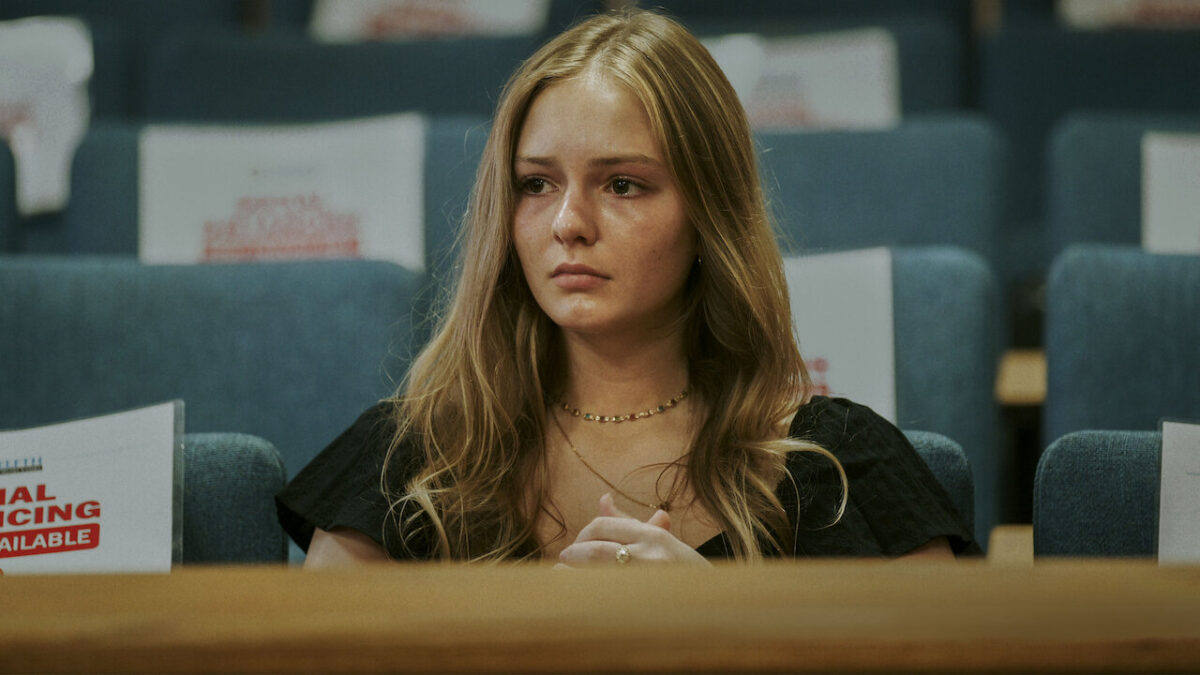
When Maya Kowalski was 10 years old, the once-vibrant Florida youngster started exhibiting a worrying array of ailments: Her feet began cramping and curling inward, she couldn’t stop coughing, headaches nearly incapacitated her, and lesions appeared on her limbs. Her doting parents, Jack and Beata, were desperate for not even a cure but simply a diagnosis of what was ailing their beloved firstborn. For Beata, a Polish immigrant and nurse known for her direct nature, it was yet another challenge to overcome, another medical mystery to unravel.
What would unfold over the next few years was a nightmare even the always-prepared Beata couldn’t possibly predict, a complicated story with a heartbreaking — and wholly unfinished — conclusion that should terrify everyone. First-time feature filmmaker Henry Roosevelt attempts to unpack what happened to the Kowalskis (and, as the film eventually alleges, what has happened to many other American families) in the documentary “Take Care of Maya,” a wrenching and ultimately incomplete look at an unbelievable true story.
If the shades of this story — sick kid, dedicated mom, a family tale with unexpectedly wide implications — sounds familiar, perhaps you’ve already read Dyan Neary’s excellent 2022 article in The Cut or one of Daphne Chen’s pieces from the Sarasota Herald-Tribune, and know where this story ends. And while Roosevelt doesn’t try to obscure the tragedy that consumes the documentary’s final act, the pains with which the filmmaker goes to unspool his film in a linear fashion, all the better to attempt to find the truth in a complex story, are a wise choice.
Less effective are the various perspectives Roosevelt dips in and out of while telling that story. What happened to Maya and Beata has (and will likely only continue to) inspire all kinds of controversy, with everything from Maya’s eventual diagnosis and the treatment the Kowalskis pursued to the actions of a local hospital and the Pinellas County child-protection team up for debate, but Roosevelt’s film wavers between taking a clear stance on any of the issues at hand.
Not that that’s necessary for a documentary — where, typically, objectivity would rule — but Roosevelt attempts to have things both ways, diving deep into the lives of the Kowalskis while also including surveillance footage from Maya’s many hospital stays that seems to slyly refute the family’s own experience. That means it’s up to viewers to draw their own conclusions, but “Take Care of Maya” doesn’t provide nearly enough information to allow for that. What it does provide, however, is heartbreaking and infuriating, a document of a bizarre tragedy that seems destined to never get full closure for anyone involved.
The facts, as slippery as that term may be in this instance, are as follows and are neatly laid out in Roosevelt’s film: After Maya started experiencing her ailments, few doctors could pinpoint a diagnosis until Dr. Anthony Kirkpatrick offered one that came complete with a controversial “cure.” Kirkpatrick alleged that Maya had CRPS (“complex regional pain syndrome”), a rare form of chronic pain that tends to afflict young girls most often and is, much like chronic fatigue syndrome and fibromyalgia, misunderstood often to the point of derision. To heal Maya, Kirkpatrick started her on a ketamine regime, eventually ending with a dose so intense that it was meant to put her into a five-day coma.
When Maya woke up, she felt better until she didn’t. Months after her coma, Beata and Jack took her to a local hospital for treatment, where the various doctors, nurses, and social workers eventually concluded that Maya was not sick and that meticulous and direct Beata was actually the ailing one, suffering from Munchausen syndrome by proxy (hello, “The Act”). For nearly three months, Maya stayed in the hospital — where her insurance company was, ironically, billed for her CRPS treatment — while her family, especially Beata, were kept away from her and ruthlessly investigated by the state of Florida.
Roosevelt has a wealth of material to work with in telling this story, thanks to Beata’s detailed notes and audio recordings, plus a number of interviews with various talking heads and even deposition material from the eventual lawsuits that are skin-crawling in about five different ways. At times, “Take Care of Maya” feels almost too personal, as Roosevelt follows the Kowalskis during some of their darkest days, burrowing inside a broken family and only being able to show us the pieces.
That sense of a story rendered incomplete, of answers we may never fully know, is at the heart of the Kowalskis’ story, but Roosevelt’s film is unable to square that with the constraints and demands of a feature film. Just as one story comes to a horrible close, others begin to spin outward, none of them able to find any sense of closure or completion, just more pain, no cure.
Grade: B-
“Take Care of Maya” premiered at the 2023 Tribeca Film Festival. It will start streaming on Netflix on Monday, June 19.















